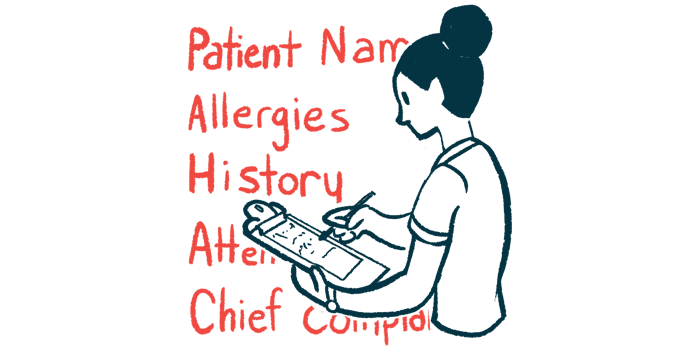Study Finds Common Concerns of Patients Across 5 European Countries

A study has identified concerns common to people with primary Sjögren’s syndrome across five European countries, which researchers hope will help the development of more meaningful patient-reported outcomes and support medical professionals in providing better treatment options.
The study, “The Experiences of Functioning and Health of Patients With Primary Sjögren’s Syndrome: A Multicenter Qualitative European Study,” was published in Frontiers in Medicine Rheumatology.
Sjögren’s syndrome is an autoimmune condition characterized by inflammation in the glands that produce saliva and tears, as well as various musculoskeletal, gastrointestinal, and neurological symptoms. Patients often experience mucosal dryness, pain, and fatigue that result in decreased health-related quality of life.
The perceptions of the disease may differ depending on geographic location and between patients based on their experiences and cultural backgrounds. This has limited the development of patient-reported outcome tools that can be easily implemented across multiple countries.
Examining patient perspectives across countries may help identify common concerns among patients regardless of their cultural background. This could “facilitate more patient-centered decisions, ultimately improving the quality of care,” the researchers wrote.
In this study, an international team of researchers conducted 12 focus groups involving 51 primary Sjögren’s syndrome patients in five European countries: Austria, Germany, Italy, Romania, and Sweden. The goal was to compare the cross-cultural experiences of patients and collect perspectives, called “concepts” by the researchers, about their functioning and health.
Of the 51 patients, all were female except for one man in Germany. They were on average 59 years old, and had the disease for nine years, on average.
From the focus groups, investigators initially identified 184 sub-concepts in Austria, 156 in Germany, 151 in Italy, 98 in Romania, and 103 in Sweden. After grouping these sub-concepts, the researchers were left with a total of 82 concepts that were meaningful to patients.
“After conducting a meaning condensation analysis of each focus group, we subsequently combined the extracted concepts from each country,” the researchers wrote, “and mapped them to the International Classification of Functioning, Disability and Health (ICF)” — a model developed by the World Health Organization that classifies health-related domains according to strict rules.
The concepts were divided into five different categories based on the ICF, including activities and participation, body functions and structure, environmental factors, and personal factors. A fifth category included all concepts undefined or not covered by the ICF, such as not knowing the origin of the disease, the difficulty in getting a diagnosis, or the financial burden of the disease.
Among the 82 concepts, 67% were mentioned in at least four countries and 44% in all five. The majority (30%) were in the ICF category of activities and participation such as difficulty performing daily activities, negative impact on relationships, and changes in employment.
The category with the second largest number of concepts (27%) was undefined or not covered by the ICF, followed by body functions and structures (18%) which included sleep problems, the impact of dryness, and reduced memory and attention.
“Two thirds of concepts assigned to body functions and structures (67%) and nearly half of the concepts related to the activities and participation (52%) were mentioned in all the five countries, indicating the importance of those two domains,” the researchers wrote.
“The importance of having knowledge about their own abilities, the disease and its consequences for life was found to be meaningful by the patients with pSS,” they added.
Some patients mentioned that healthcare professionals do not always take their concerns seriously, nor are they always understanding. One patient mentioned that going to the dentist is particularly challenging due to her lack of saliva and the dentist’s lack of understanding.
Furthermore, participants felt that routine visits with their healthcare professionals were too short in duration. They also mentioned a lack of user-friendly information and the risk of misjudging the available information.
The participants varied in their attitudes about medication, with some accepting them and some wishing to stop taking them. Addressing non-pharmacological treatments and self-management strategies is something healthcare professionals should focus on to ensure better patient-centered care, the researchers wrote.
“In conclusion, concepts meaningful to the patients with pSS [primary Sjögren’s syndrome] identified in the five European countries might be used to guide the development and the adaption of [patient-reported outcome measurements],” the team wrote.
“Concepts identified in this study enhance the clinical routine of the health professionals in order to provide support and treatment options based on the aspects relevant to the patients with pSS,” the researchers concluded.
However, the results of the study have to be considered preliminary, they added, and need to be confirmed by future research.








